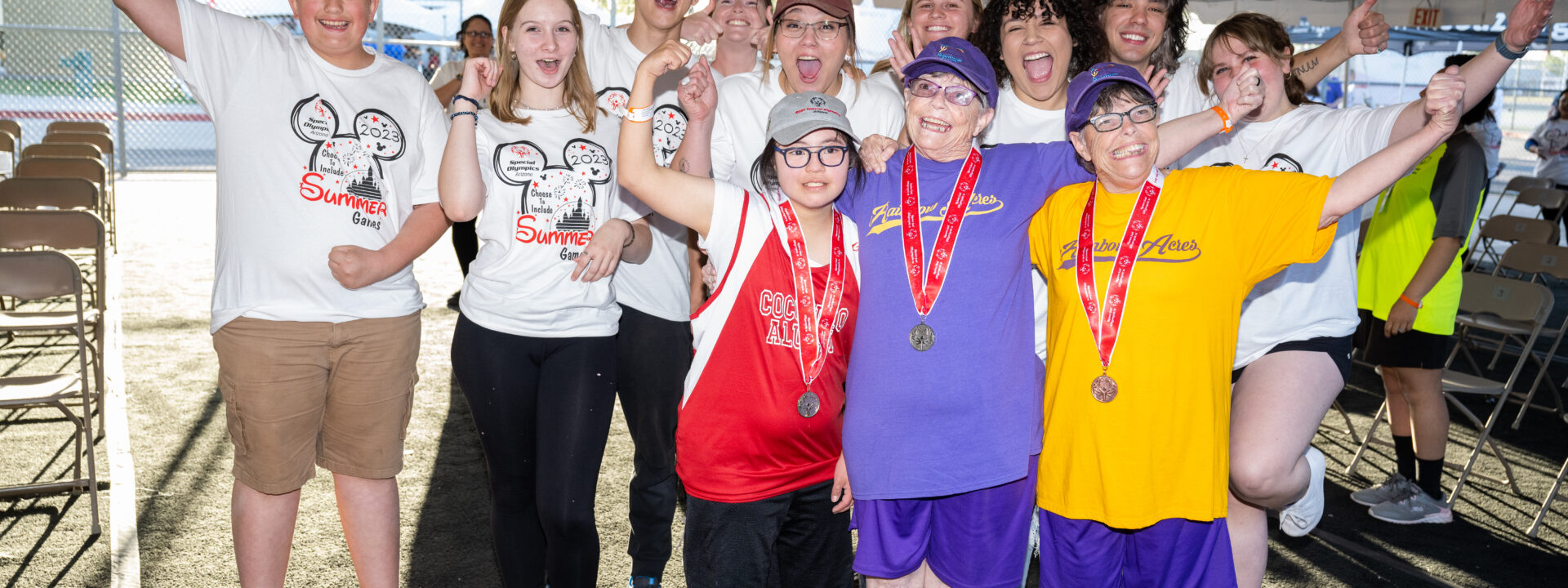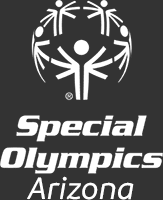
Signs & Symptoms of Prader-Willi Syndrome
Signs & Symptoms of Prader-Willi Syndrome
Prader-Willi syndrome is a rare and very complex genetic disorder that is caused by genes on chromosome 15 losing function due to chromosomal deletion, maternal uniparental disomy, or translocation of the chromosome. Prader-Willi syndrome is extremely rare, affecting only 1 in every 10,000 to 30,000 people worldwide. This rarity makes the signs and symptoms of Prader-Willi, which include developmental difficulties, physical characteristics, and intellectual difficulties, difficult to recognize in children and adults. The Special Olympics Arizona team is shedding light on the signs and symptoms of Prader-Willi and how the syndrome might appear in infants, children, and adults.
What Are the Signs of Prader-Willi Syndrome?
Prader-Willi syndrome affects each individual differently, and the signs and symptoms may appear differently as an infant grows into a child and a child into an adult. These changes in symptoms may be gradual and slow over time as a child ages into adulthood.
Signs of Prader-Willi Syndrome in Infants
Signs and symptoms of Prader-Willi syndrome that may be present from birth include:
Hypotonia
Hypotonia, or poor muscle tone, is one of the main signs of Prader-Willi syndrome during infancy. Babies may rest with their elbows and knees loosely extended instead of in a fixed position. When held, babies with poor muscle tone may feel floppy, like rag dolls. Decreased muscle tone may also make it difficult for babies to suck, resulting in feeding difficulties in infancy.
Physical Characteristics
Babies with Prader-Willi may have recognizable physical characteristics, especially unique facial features. Babies may be born with almond-shaped eyes and a narrowing of the head at the temples. They may also have a turned-down mouth and a very thin upper lip.
Underdeveloped Genitals
Babies born with Prader-Willi may have underdeveloped genitals. Males may have a very small penis and scrotum, or testicles that are small or have not descended from the abdomen into the scrotum. In females, the clitoris or labia may be very small.
Poor Responsiveness
Infants with Prader-Willi syndrome will often have difficulty responding to stimuli and may seem unusually tired or have a hard time waking up. It is also common for babies to have a noticeably weak cry.
Signs of Prader-Willi Syndrome in Children & Adults
After infancy, around age 2, other symptoms begin to develop that will often require special attention and care for children and adults with Prader-Willi syndrome. These symptoms include:
Learning Difficulties & Delayed Development
Individuals with Prader-Willi syndrome will often deal with some level of cognitive impairment, which causes mild to moderate intellectual disability. This intellectual disability can cause issues with thinking, reasoning, or problem solving. Most individuals with Prader-Willi will have learning difficulties and struggle to pay attention or engage with the material in a school setting. They may have delayed cognitive development and may speak, read, or understand things later than their peers.
Increased Appetite
One of the most well-known and common signs of Prader-Willi syndrome is an extreme hunger and craving for food, which generally begins in individuals with the syndrome around the time they reach age two. This constant hunger leads to overeating and consuming large portions of food frequently, which can result in rapid weight gain. Some individuals may deal with unusual food-seeking behaviors, such as hoarding food, eating frozen food, or even eating garbage in desperation. The increased appetite can make it difficult for parents of children with Prader-Willi to keep them at a healthy weight, and it can be hard to handle.
Underdeveloped Sex Organs
Individuals with Prader-Willi syndrome commonly deal with hypogonadism, which is a condition in which the sex organs produce little or no sex hormones. This results in underdeveloped sex organs, incomplete or very delayed puberty, and infertility. Many women with Prader-Willi syndrome do not start menstruating until they are nearly 30 or never begin menstruating, and many men may not develop facial hair or may not have a deepened voice.
Physical Characteristics
There are some recognizable physical characteristics of individuals with Prader-Willi, such as short adult height, low muscle mass, and high body fat caused by the underproduction of growth hormone. Children may also experience physical milestones, such as walking and sitting up, later than their peers.
Behavioral Issues
Children and adults with Prader-Willi syndrome are commonly very stubborn and may be frequently angry, controlling, or manipulative. It is possible that they may throw frequent temper tantrums, especially in a situation where they are denied food. Individuals may have difficulty handling changes when it comes to their routine, and they may develop obsessive-compulsive behaviors or repetitive behaviors. Anxiety and skin picking may also be common behaviors among individuals with Prader-Willi syndrome.
Sleep Disorders
It is common for children and adults with Prader-Willi to have some sleep disorders, including disruptions of the normal sleep cycle. This can result in excessive daytime sleepiness and, in some cases, worsen behavioral problems. It is also common for individuals to have a condition where breathing pauses during sleep, known as sleep apnea, which could also make sleeping difficult for children or adults with the syndrome.
Other Health Complications
Individuals with Prader-Willi syndrome may notice other health problems, including endocrine problems like the underproduction of thyroid hormone or central adrenal insufficiency, which prevent the body’s normal stress response from acting out as it should. Children and adults may deal with scoliosis, or a curve of the spine, hip problems, and reduced saliva flow. Vision problems are common, especially nearsightedness. Issues regulating body temperatures can occur, as can a high pain tolerance. Individuals may have a lack of pigment in their skin, eyes, and hair, causing them to be very pale.



